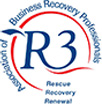How to Close a Company
Directors and shareholders, whilst generally knowing how to start a Company and build up its trade, are often left with little advice as to how to close a limited company.
Is the Company Solvent?
In the event that your business is solvent and does have sufficient assets to discharge its liabilities, then if you are considering closing your business, a solvent liquidation process might just be the most tax efficient route for you to close your Company’s affairs. In closing a business, the company shareholders might be eligible to receive Entrepreneurs Relief, a tax that is currently set at 10%. This can, subject to the Company’s financial position, provide a substantial saving to the Company’s shareholders when closing down a Company.
Closing the Company can be undertaken in a manner of forms, either through a structured closure, a simple striking off procedure, or a solvent liquidation (often referred to as an MVL (members’ voluntary liquidation).

Use our instant MVL Calculator to work out MVL cost
In the event that the Company is unable to discharge its liabilities, a company can be closed through a formal insolvency procedure such as Administration or Liquidation.
How to Close a Company that is Insolvent
However, more often than not, when attempting to close a Company, directors are conscious of their Company’s financial affairs and wish to close the limited Company because it has run out of money. This is generally where advice to directors and shareholders is limited because closing a Company, particularly one that has run out of money, is not an everyday occurrence.
If your Company is running out of money, or is facing significant financial pressure and you feel that there is little option but to close the business, then you will likely need to speak with a licensed insolvency practitioner to seek advice on the Company’s financial affairs and to receive guidance as to how to close the Company and how you go about closing its business.
Use our instant CVL Calculator to work out CVL cost
Seek Advice From a Qualified Insolvency Practitioner
A licensed insolvency practitioner should provide you, for free, at least an hour of their time to provide you with the help and guidance that you need to close your business and close your Company. If the Company is insolvent and does not have sufficient assets to settle its liabilities in full, then a formal insolvency procedure is probably what is required to close your limited Company. The most common process is creditors voluntary liquidation.
To undertake any formal insolvency procedure to close your Company, a licensed insolvency practitioner will be required. There are many firms that offer advice to directors on how to close their business who say that they will introduce you to a licensed insolvency practitioner to help you close your Company. Usually such firms will require payment for the initial advice before introducing you an insolvency practitioner with whom they work. If your business is insolvent, you will be better served approaching one directly and to remove any middle men from the process.
UK Wide Support for Businesses from our Offices in London & Nottingham
If you are concerned about your Company’s financial affairs and need advice as to how to close your limited company, then get in touch with Corporate Financial Solutions today, one of our licensed insolvency practitioners will help you. All of our initial advice and guidance is provide free of charge and we will provide you with all the advice that you need to close your company and close your business. This advice will be provided directly to you by one of our licensed insolvency practitioners. We have offices in London and Nottingham in the Midlands, making us well placed to support businesses





